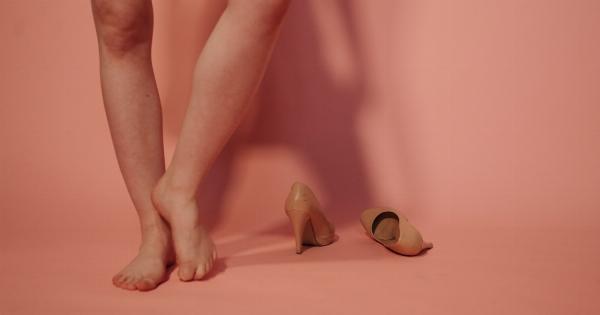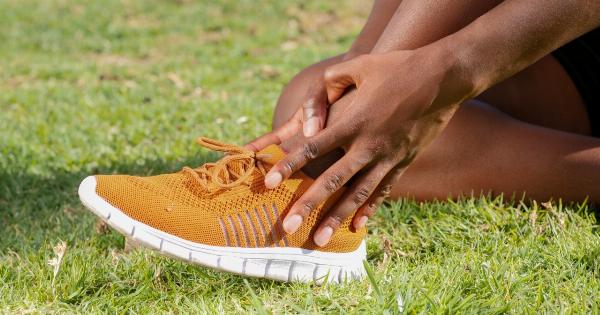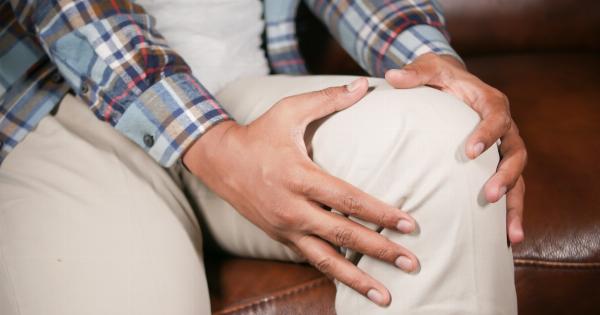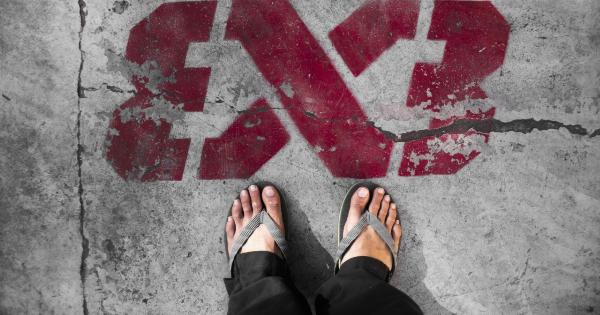High heels have long been a staple in the fashion world, with women wearing them to enhance their appearance and boost their confidence. However, while heels may provide a temporary boost in height and style, they can also wreak havoc on your knees.
The Anatomy of the Knee
Before diving into the impact of heels on your knees, it is important to understand the complex anatomy of this joint.
The knee is made up of several crucial components, including bones, cartilage, tendons, ligaments, and muscles, all working together to provide stability and facilitate movement.
The Effects of Heel Height on Knee Alignment
When you slip on a pair of high heels, your body’s alignment is immediately thrown off. Your weight is shifted forward, placing excessive pressure on the front of your knees. This altered alignment can lead to a myriad of knee problems over time.
One of the most common issues associated with wearing heels is patellofemoral pain syndrome (PFPS) or runner’s knee.
PFPS occurs when the patella (kneecap) no longer tracks correctly as you move your leg, causing pain, inflammation, and a grinding sensation in the knee joint.
Another knee condition exacerbated by heels is osteoarthritis. This degenerative joint disease causes cartilage breakdown, leading to pain, swelling, and stiffness.
The unnatural alignment caused by heels can accelerate the onset and progression of osteoarthritis in the knees.
Heels and Increased Risk of Injuries
Wearing high heels not only increases your risk of developing chronic knee conditions but also makes you more susceptible to acute injuries.
The instability created by elevated heels can easily lead to accidents, such as ankle sprains or knee ligament tears.
When walking in heels, especially on uneven surfaces or stairs, your ankles must work extra hard to maintain balance. This extra strain on your ankle joints can transfer to your knees and result in injuries.
Furthermore, the risk of falling due to an unsteady heel base is significantly higher, potentially causing severe knee injuries.
The Impact on Your Walking Gait
Heels drastically alter your natural walking gait, affecting not only your knees but also other parts of your body. When wearing heels, your stride becomes shorter and choppier, leading to increased pressure on your knees.
This altered gait can cause muscle imbalances and reduced joint stability.
Moreover, when you wear heels regularly, your calf muscles can become chronically shortened. This shortening further compounds the knee problems since your calf muscles play a crucial role in stabilizing the knee joint.
Tight calf muscles can increase the stress on your knees, leading to pain and discomfort.
Preventing Knee Problems While Wearing Heels
While it is best to avoid wearing heels altogether, we understand that some occasions may call for a stylish pair of pumps or stilettos. Here are some tips to help minimize the negative effects of heels on your knees:.
- Opt for lower heels: Choose lower heels or kitten heels that offer some elevation without placing excessive strain on your knees.
- Wear heels sparingly: Reserve wearing heels for special events or occasions, and try not to make them a daily part of your wardrobe.
- Strengthen your leg muscles: Engage in regular exercises that target your leg muscles, especially those that support your knees, such as quadriceps and hamstrings.
- Stretch your calf muscles: Perform regular calf stretches to maintain flexibility in these muscles and reduce the strain on your knees.
- Choose the right shoe size: Wearing heels that are too tight or too loose can further exacerbate knee problems. Ensure your heels fit properly to minimize discomfort and stress on your knees.
- Invest in orthotic inserts: Consider using orthotic inserts or custom-made insoles in your heels to provide additional cushioning and support to your feet and knees.
When to Seek Medical Help
If you experience persistent knee pain, swelling, or instability, it is crucial to seek medical help. A healthcare professional can assess your knee health, provide a proper diagnosis, and offer guidance on treatment options.
Remember, your knee health is vital for your overall well-being and mobility. Prioritize comfort and health over fashion trends when it comes to footwear choices.



























